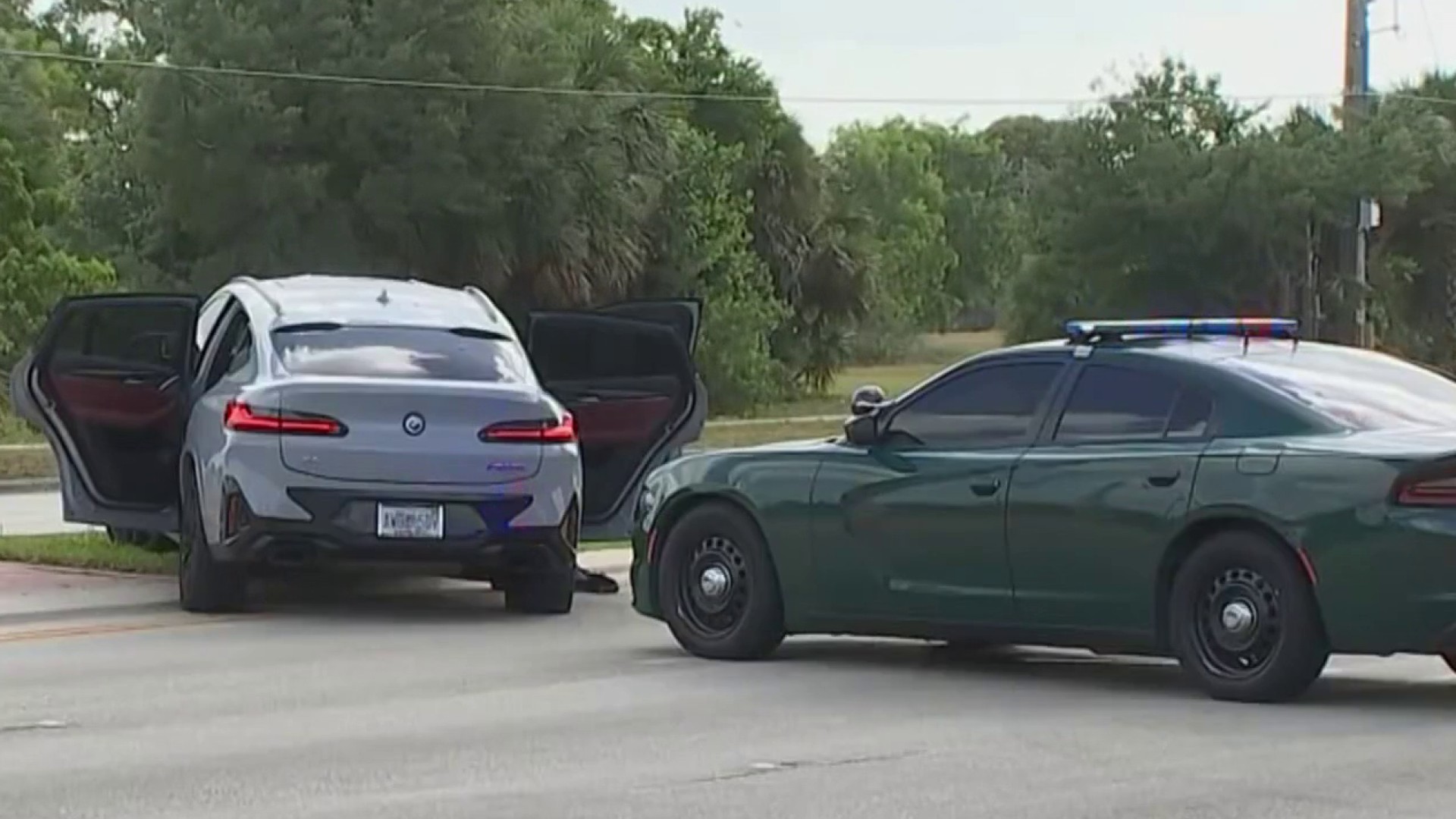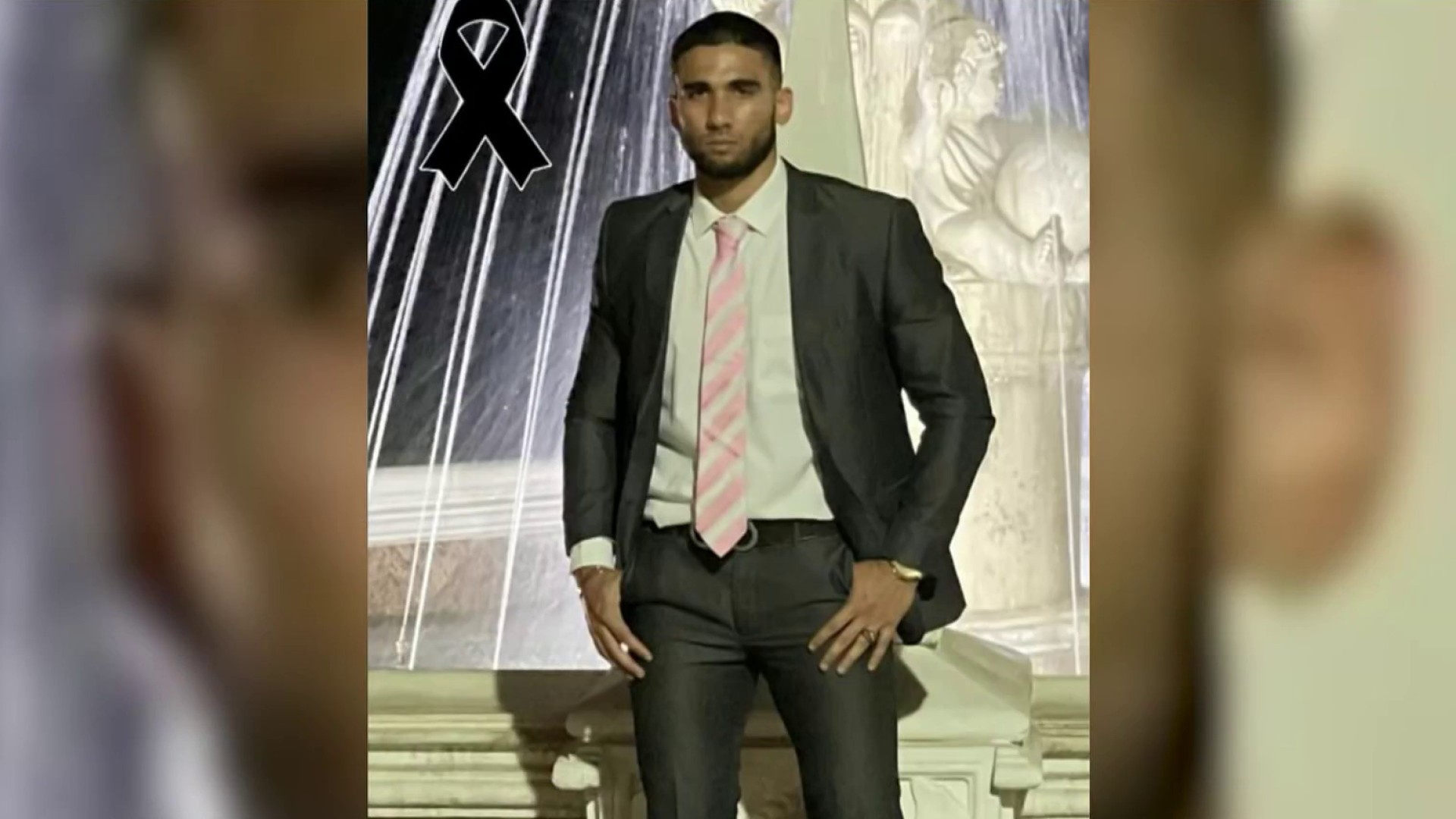A white man wearing a mask and firing a weapon emblazoned with a swastika gunned down three Black people Saturday in a racist attack in Jacksonville, Florida. The shooter, who had also posted racist writings, then killed himself. Here's what we know about the killings:
The shooting happened Saturday afternoon at a Dollar General store in New Town, a predominantly Black neighborhood of Jacksonville, Florida. The city has almost 1 million residents and lies just south of the Georgia border. About a third of Jacksonville's residents are Black.
Just last week, a city council committee pulled funding for the mayor’s chief of diversity and inclusion — the first time the city would have had such a position.
The store where the shootings took place is near Edward Waters University, a historically Black school with about 1,000 students. The school said the man was spotted on campus by a security guard shortly before the shootings and asked to leave when he refused to identify himself. He was seen putting on his bullet-resistant vest and mask before he drove away. Jacksonville Sheriff T.K. Waters said Sunday that it does not appear the assailant intended to attack the school. The Dollar General store where the shootings occurred is a short walk for residents of Grand Park, a Jacksonville neighborhood of modest brick and cinderblock homes. Darlene Neal, who has lived there for three decades, said many residents of the largely Black neighborhood struggle with poverty.
Get South Florida local news, weather forecasts and entertainment stories to your inbox. Sign up for NBC South Florida newsletters.
Angela Michelle Carr, 52, was shot in her car outside the Dollar General; store employee A.J. Laguerre, 19, was shot as he tried to flee; while customer Jerrald Gallion, 29, was shot as he entered the store. No one else was injured.
Ryan Palmeter, 21, who lived in neighboring Clay County with his parents. Sheriff Waters said Palmeter had been involved in a 2016 domestic violence incident that did not lead to an arrest and was involuntarily committed for a 72-hour mental health examination the following year. Palmeter used two guns — a Glock handgun and an AR-15 style semi-automatic rifle. Waters said they were purchased legally earlier this year.
Racism. During the attack, Palmeter texted his father and told him to break into his room and check his computer. There, the father found a suicide note, a will and racist writings from his son. The family notified authorities, but by then the shooting had already begun, the sheriff said. Officials say there were writings to his family, federal law enforcement and at least one media outlet. Sheriff Waters said that the shooter made clear in his writings that he hated Black people.
Local
After the shooting, the school was put on lockdown for several hours and the students were kept in their dorm rooms for their safety. The school says no students or staff were involved in the shooting.
President Joe Biden: As of Monday morning, he had not yet spoken to any of the families whose loved ones were killed. He said two of the families indicated they are prepared to hear from him, but that the other one “does not want to be contacted.”
Biden said he understood and wanted to let the situation settle before reaching out. The president lost his first wife and infant daughter in a 1972 car accident, and his adult son Beau died of brain cancer in 2015.
“Everybody deals with profound loss in a different way,” Biden said.
Florida State Rep. Angie Nixon: “We must be clear, it was not just racially motivated, it was racist violence that has been perpetuated by rhetoric and policies designed to attack Black people, period."
Jacksonville Mayor Donna Deegan: “I’ve heard some people say that some of the rhetoric that we hear doesn’t really represent what’s in people’s hearts, it’s just the game. It’s just the political game. Those three people who lost their lives, that’s not a game."
Rudolph McKissick, senior pastor of the historic Bethel Church in Jacksonville: “As it began to unfold, and I began to see the truth of it, my heart ached on several levels."
Florida Gov. Ron DeSantis: “This guy killed himself rather than face the music and accept responsibility for his actions. He took the coward’s way out."
LaTonya Thomas, a Jacksonville resident riding a charter bus home after the 60th anniversary commemoration of the 1963 March on Washington for Jobs and Freedom: “It made the march even more important because, of course, gun violence and things of that nature seem so casual now. Now you have employees, customers that will never go home.”
Attorney General Merrick B. Garland: "No person in this country should have to live in fear of hate-fueled violence and no family should have to grieve the loss of a loved one to bigotry and hate. One of the Justice Department’s first priorities upon its founding in 1870 was to bring to justice white supremacists who used violence to terrorize Black Americans. That remains our urgent charge today. The Justice Department will never stop working to protect everyone in our country from unlawful acts of hate.”



